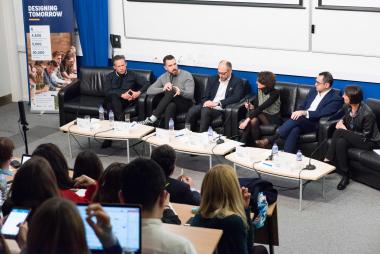Lectra joins Euronext Tech Leaders
Lectra, whose connected industrial equipment and software facilitate the digital transformation and Industry 4.0 transition of fashion, automotive and furniture companies, announces its selection for the new Euronext Tech Leaders stock market index. This brings Lectra into the community of European technology leaders identified by Euronext as innovative and high-growth companies.
The new Euronext Tech Leaders market index, launched on June 7, comprises 100 European technology companies listed on the Euronext markets, which meet various performance and growth criteria. With the launch of this initiative, Euronext aims to offer better visibility and new services to selected European technology leaders.
Lectra is one of the 41 French companies that are now members of Euronext Tech Leaders. The company, founded in 1973 on a close relationship with fashion industry players, has also for the last three decades worked globally with automotive equipment and furniture manufacturers. In its three strategic markets, Lectra sells connected equipment that optimizes the cutting processes of fabric, leather and other soft materials used by manufacturers, and markets software and services that streamline their production processes while enabling them to be more agile and make considerable material savings.
In fashion, through the use of market data – made accessible and exploitable by the Internet of Things, the cloud, artificial intelligence and big data – Lectra’s software solutions also enable a better understanding of consumers’ behavior. They therefore facilitate strategic decision-making for brands, manufacturers and distributors at the key steps in the value chain of design, production and distribution. In this industry, the impact of Lectra’s solutions on reducing material consumption is even greater because it takes effect as early as the garment design stage.
Technology and innovation are therefore at the heart of Lectra’s strategy, with the company aiming to become a key player in Industry 4.0 in its strategic markets by 2030.
Lectra










